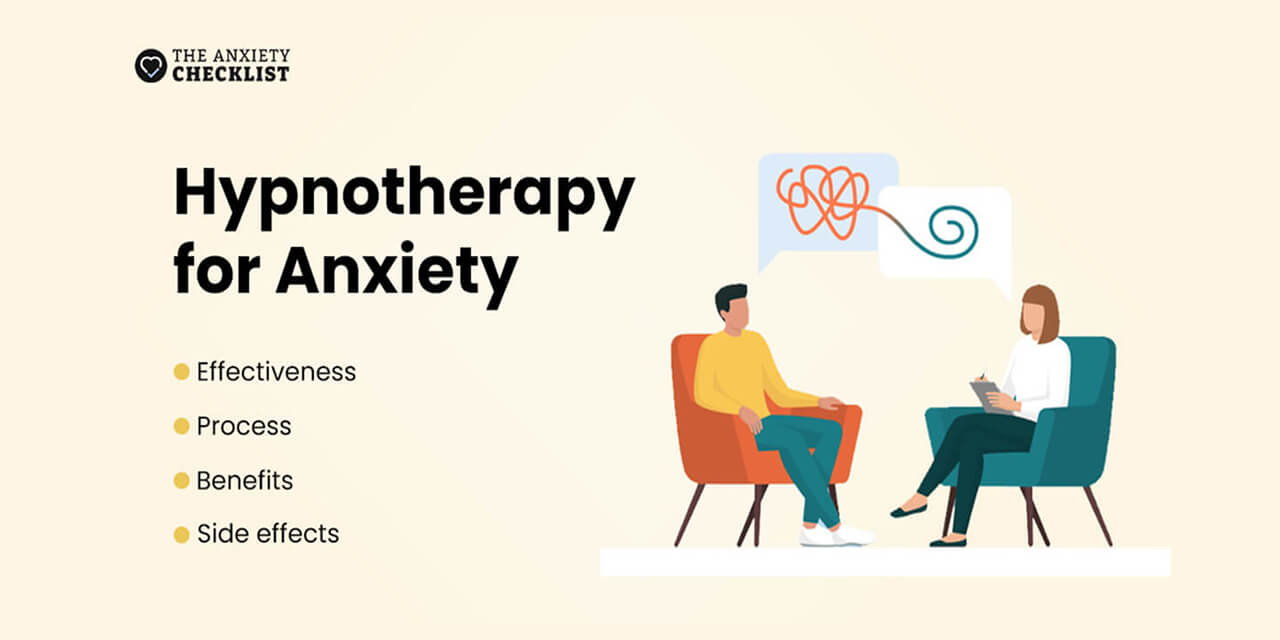- That’s the voice of healthy skepticism. And it’s fair. Hypnosis has long sat in the shadowy borderland between science and spectacle.
- But science is catching up.
- Imagine a state of relaxed focus so deep, it unlocks the part of your mind where habits, fears, and beliefs quietly shape your behavior. This isn’t mysticism—it’s measurable. And for some, it’s transformational.
- In a 2019 meta-analysis published in the International Journal of Clinical and Experimental Hypnosis, participants receiving hypnotherapy showed greater anxiety reduction than 79% of control participants at post-treatment, with follow-up data suggesting an even stronger effect over time—comparable to Cognitive Behavioral Therapy (CBT) in some cases (Valentine et al., 2019).
- But let’s be clear: hypnosis isn’t a magic wand, nor is it a standalone cure.
- The American Psychological Association and the American Medical Association recognize hypnotherapy as a complementary approach, most effective when paired with evidence-based treatments like CBT or medication when clinically indicated.
- That said, hypnosis can be a valuable ally—especially when anxiety feels resistant to logic alone. It may also support progress in adjacent areas like depression, chronic pain, performance stress, or addiction when used in conjunction with evidence-based treatments. While research on hypnosis for issues like smoking cessation and weight loss shows mixed results, it’s most effective when integrated into a broader therapeutic plan. In all cases, hypnosis should be considered a complement, not a replacement, for appropriate medical or psychological care.
- So, if you’re here reading this, chances are you’re already open to possibilities. And that’s a powerful place to begin.
When anxiety hits, do you know what to do next?
Learn how to calm your body, interrupt fear loops, and regain control step by step.
What Is Hypnosis and Hypnotherapy Anyway?
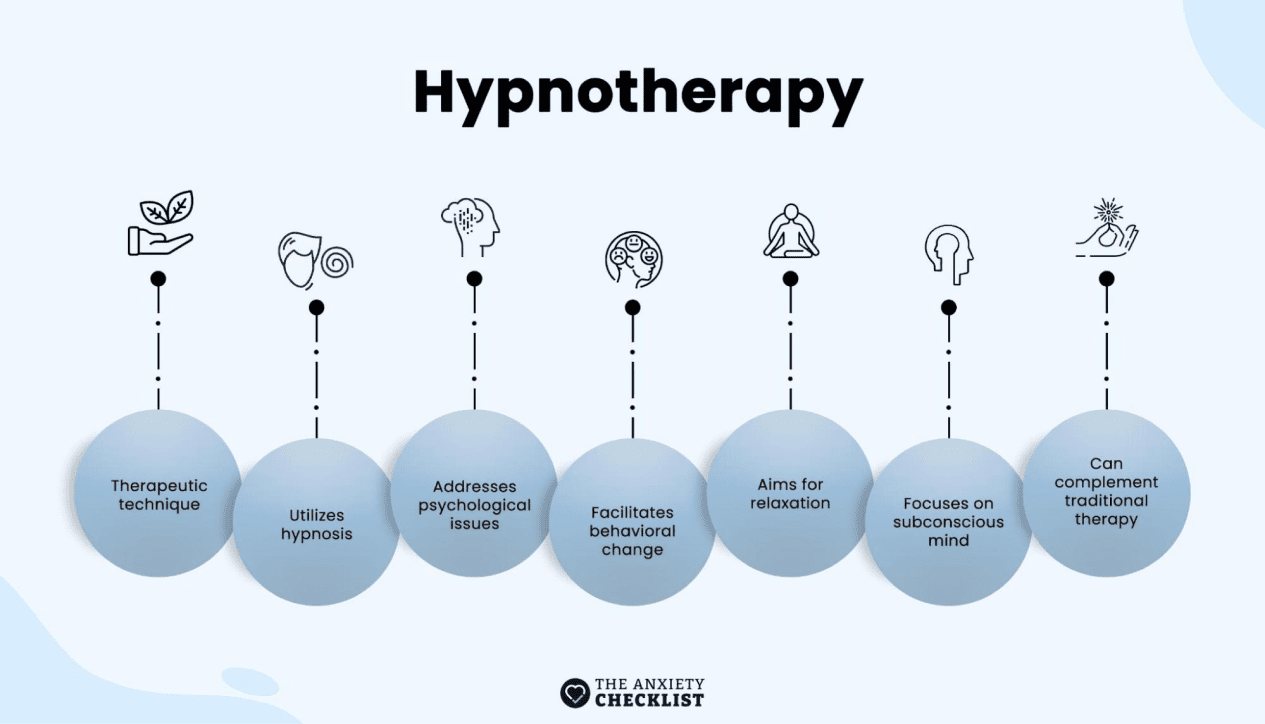
Does Hypnotherapy Work for Anxiety? Yes
As someone who has personally struggled with anxiety, I, Romain, found hypnotherapy to be one of the earliest approaches that truly helped. That's precisely why I decided to incorporate it into our anxiety checklist.
The Perks of Hypnotherapy in Anxiety Treatment
Build Confidence
- Ever felt like you're constantly second-guessing yourself? Hypnotherapy can help you break free from self-doubt and step into your full potential.
Improve Sleep Quality
- Many of us struggle with sleep issues because of our busy lives, constant worries, and late-night scrolling on our devices. Hypnotherapy can guide you into a deep, restorative sleep, so you wake up refreshed.
Increase Energy Levels
- Do you often find yourself feeling drained and lethargic? Energy boosts and a renewed motivation to seize the day are commonly reported effects of hypnotherapy.
Reduce Negative Thoughts & Behaviors
- Things like self-doubt, comparison, and self-criticism are no strangers to many of us. Hypnotherapy can reprogram your mind, replacing negative patterns with positive ones.
- You’ll be happy to know that for some people, hypnotherapy can offer meaningful results in fewer sessions compared to traditional talk therapy—making it a potentially time- and cost-effective option. That said, outcomes vary. While some clients experience rapid progress, others may benefit from a longer course, or from combining hypnosis with other proven methods like CBT or medication.
- All that said, hypnotherapy isn't a magic cure for anxiety. But it can certainly help in managing symptoms. So, why not give it a try?

What to Expect in a Hypnotherapy Session?
Here's what the next hour or so will entail:
- If this feels overwhelming, it's okay. New experiences can often feel that way. But rest assured, throughout the session, you'll stay aware and in control. And remember, you can end the session at any time if you feel uncomfortable.
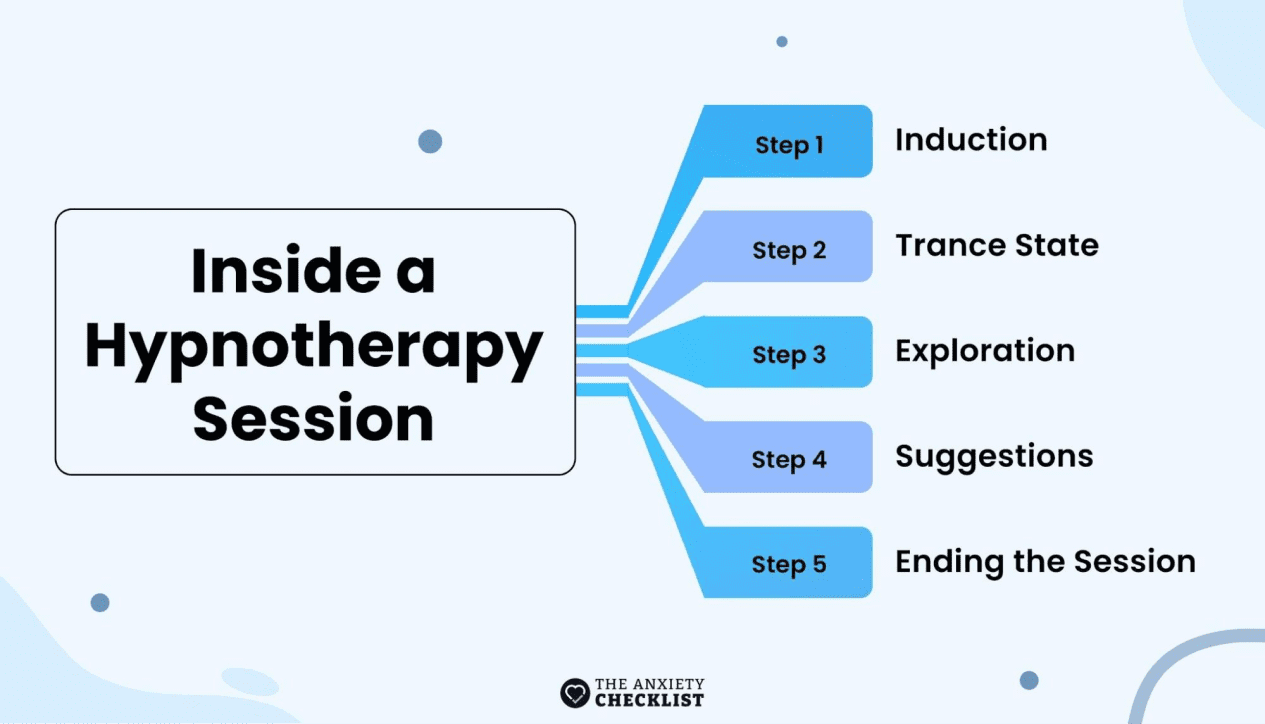
Preparing for Hypnotherapy: What You Should Know
It’s Very Safe
- While hypnotherapy’s reputation has been muddied by its showbiz cousin—stage hypnosis—clinical hypnotherapy is an entirely different story. When practiced by a licensed professional trained in its use, it is generally considered safe and can be a powerful complement to other therapeutic approaches. That said, it’s not a one-size-fits-all remedy. For individuals with certain psychiatric conditions—like schizophrenia, dissociative disorders, or active psychosis—hypnosis may not be appropriate. As with any therapeutic tool, informed consent and clinical judgment are essential
It’s Okay to Be Nervous
- Feeling nervous before a hypnotherapy session is completely normal. However, many find that their nervousness dissipates quickly once the session begins, as they realize how relaxing and positive the process can be.
Willingness is Paramount
- Remember, hypnosis is a willing state. You can't be hypnotized against your will; it's a collaborative process between you and the therapist.
- Think of it like dancing: both partners need to be in sync for the dance to flow smoothly. Without rapport or proper training, achieving the desired state becomes challenging.
You're Still in Charge
- Contrary to what many believe, hypnotherapy doesn't take away your control; it actually empowers it. It's like being the captain of your ship, steering through feelings of pain, anxiety, habits, and stress.
- During the sessions, you're always in command of your thoughts and feelings, which can lead to a stronger sense of calm and self-control.

How Soon Will You Start Seeing Results?
Side Effects of Hypnotherapy: What to Expect
Nausea
Headaches
Drowsiness
Insomnia
Panic
- However, it's important to note that these side effects are rare and typically mild. Even if you experience them, they should subside within a few days or weeks.
- Also, although infrequent, confabulations can arise during a hypnotherapy session. This happens when your mind creates false memories or stories to fill in gaps.
- For instance, you might recall events that never occurred, like getting lost in a bustling mall.
- Fortunately, trained hypnotherapists can guide you to differentiate between real memories and confabulated ones.
- This makes it all the more crucial to consult your doctor before trying hypnotherapy, especially if you have symptoms like delusions or hallucinations.

Self-Hypnosis for Anxiety: A DIY Approach
You may be prone to having a panic attack
- You can find guided self-hypnosis scripts or audio tracks online or through apps.
- Repeat positive statements to yourself, such as "I am calm and confident" or "I release tension and anxiety."
- Practice mindfulness meditation by focusing on your breath or bodily sensations.
- Try this self-hypnosis session to help manage your anxiety: Self-hypnosis for anxiety | with Malminder Gill
- Interestingly, many hypnotherapists teach their patients self-hypnosis techniques. This approach can offer long-term sustainability and may even be more cost-effective.
- So if you're considering self-hypnosis, it might be wise to seek out a licensed professional who can guide you on the do’s and don’ts.
- Consider it similar to practicing yoga. You can certainly make use of free online resources and practice at home to reap benefits. However, learning from a professional ensures correct posture and form, thus enhancing results.
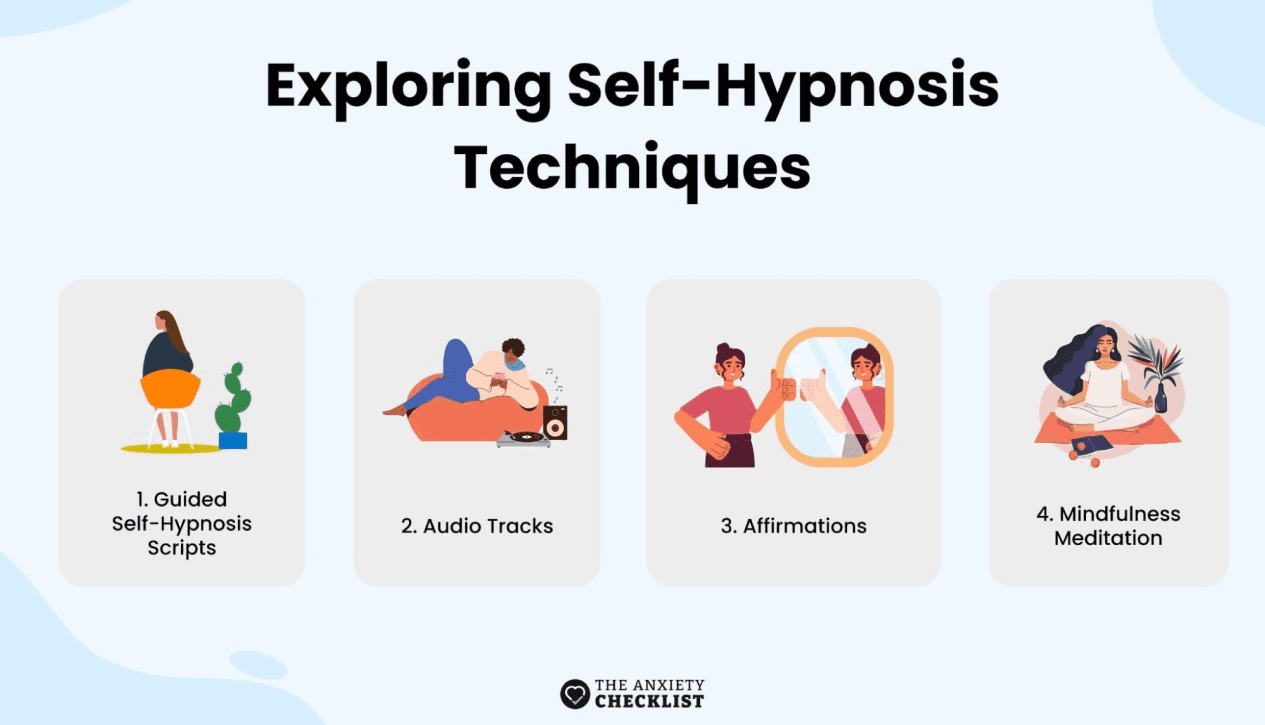
What's with the Stigma Around Hypnotherapy?
What About Hypnotherapy for Depression?
Is Hypnotherapy Effective Alone?
- Two individuals with back pain may require different treatments—such as massage therapy for muscle tension versus physical therapy for a herniated disc. Similarly, an individual with nerve-related issues may benefit from a combination of the two.
- The same goes for mental health therapy.
- Hypnotherapy can work well on its own for simple issues like changing habits or tackling specific fears.
- But if you’re struggling with more complex problems like anxiety disorders or depression, it's often better as part of a bigger treatment plan. That might mean combining it with things like counseling, medication, or cognitive behavioral therapy (CBT), breathing exercises.
- So, while hypnotherapy can be great for some things, it's not always a one-size-fits-all solution for every mental health concern. It’s all about discovering what works for your specific needs.
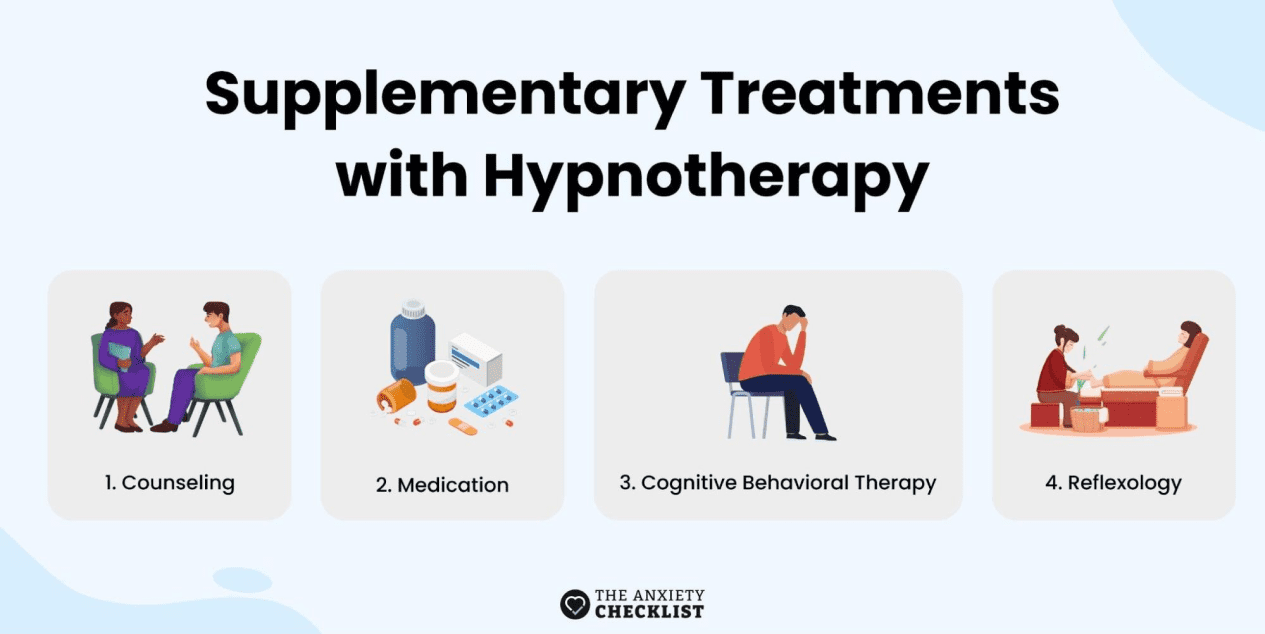
Frequently Asked Questions
While hypnotherapy isn't a guaranteed cure, it can be highly effective in managing anxiety symptoms. It helps individuals explore the root causes of their anxiety in a relaxed and safe environment. This way, it's much easier to develop coping strategies.
While results vary from person to person, many find relief and improved quality of life through hypnotherapy.
While results vary from person to person, many find relief and improved quality of life through hypnotherapy.
While hypnotherapy is generally safe and effective, it may not be suitable for everyone. Individuals with conditions like schizophrenia or bipolar disorder may not respond well to hypnosis.
Some may experience temporary side effects like dizziness or headaches, and there's also a risk of confabulation, where false memories may arise during sessions.
Some may experience temporary side effects like dizziness or headaches, and there's also a risk of confabulation, where false memories may arise during sessions.
You can start by searching online directories or platforms designed to connect you with licensed hypnotherapists. Additionally, asking for recommendations from your primary care physician or mental health professional can be helpful.
It's essential to research potential therapists, review their qualifications and experience, and ensure they specialize in treating anxiety before scheduling an appointment
It's essential to research potential therapists, review their qualifications and experience, and ensure they specialize in treating anxiety before scheduling an appointment
The number of hypnotherapy sessions needed for anxiety varies depending on factors such as severity, underlying causes, and response to treatment
Some individuals may experience improvements after just a few sessions, while others may require more prolonged therapy. It's best to discuss your specific needs and goals with a qualified hypnotherapist.
Some individuals may experience improvements after just a few sessions, while others may require more prolonged therapy. It's best to discuss your specific needs and goals with a qualified hypnotherapist.
Hypnotherapy can be successful for many individuals, especially when used as part of a comprehensive treatment plan.
Its benefits aren't limited to anxiety or depression—it's a versatile tool for various issues like stress, sleep, confidence, phobias, pain management, and performance enhancement.
Its benefits aren't limited to anxiety or depression—it's a versatile tool for various issues like stress, sleep, confidence, phobias, pain management, and performance enhancement.
Previous Article
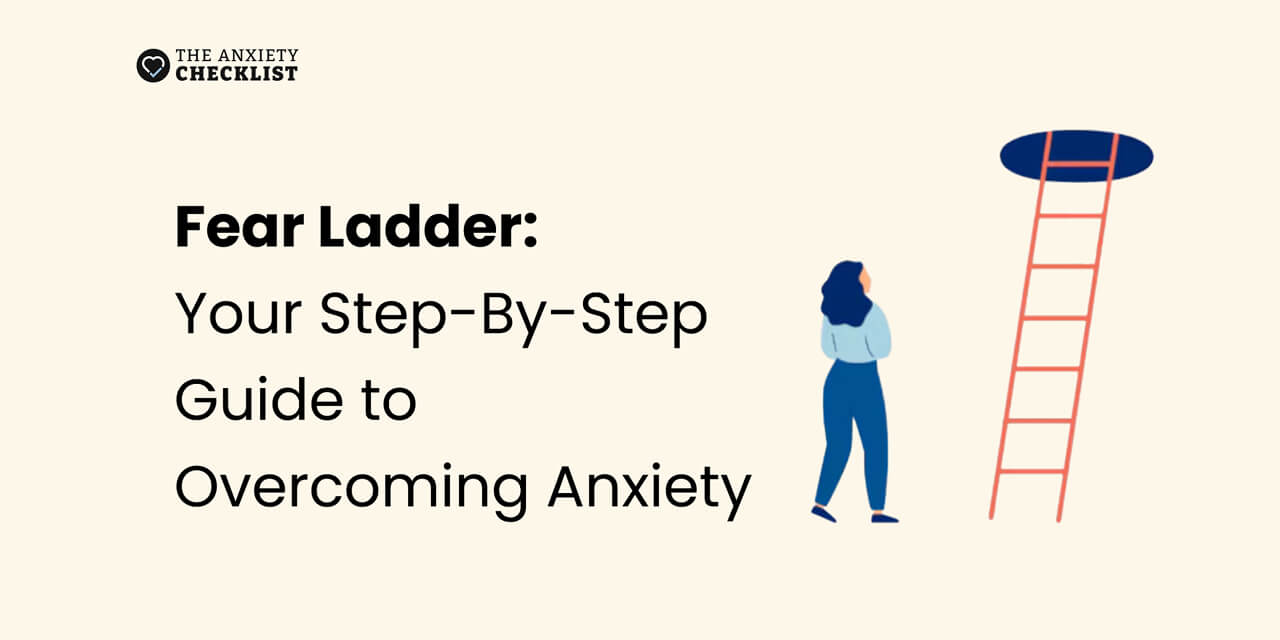
Fear Ladder: Your Step-By-Step Guide to Overcoming Anxiety
Next Article
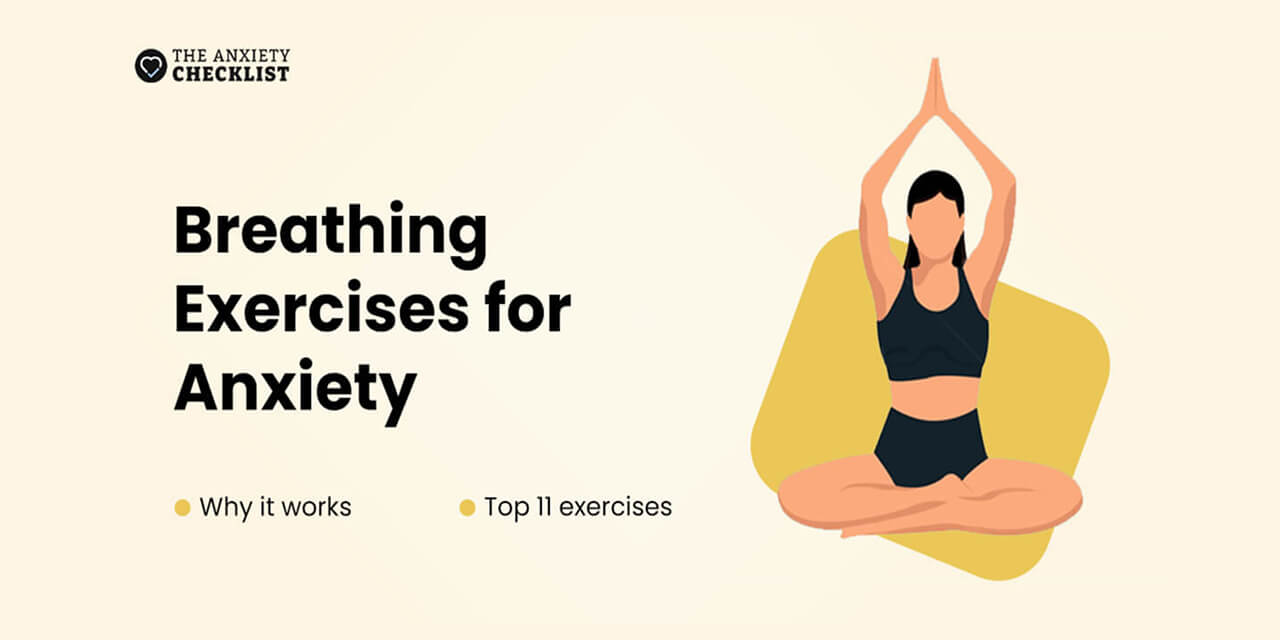
Breathing Exercises to Reduce Anxiety
If you are in a crisis or any other person may be in danger - don't use this site. These resources can provide you with immediate help.



